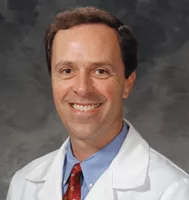Advances and challenges in radiation oncology
Dr. Paul Harari begins his term as president of the American Society for Radiation Oncology (ASTRO) at the group’s annual meeting in San Diego Sept. 24-28.
Harari, the Jack Fowler Professor and chair of the Department of Human Oncology at the University of Wisconsin School of Medicine and Public Health, shared his thoughts on state of the art and science in his field.
What are the biggest challenges facing radiation oncology in the next two years?
Those of us fortunate to be engaged in the discipline of radiation oncology have the opportunity to provide cure, palliation and hope to thousands of cancer patients each year. Beyond our specialty, however, there is a relatively limited understanding and appreciation of this remarkably effective modality of cancer treatment.

The word “radiation” can invoke fear among patients and providers based on misconceptions about toxicity, which is why it is important for us to illuminate the tremendous power and precision of radiation to heal, cure, image and improve human health and quality of life.
We convey this message most effectively through the passionate stories of patients and families whose lives have been saved or extended by the expert application of radiation.
Our ability to effectively shape and deliver this message to stakeholders can impact radiation research funding, practice reimbursement, federal regulations, development and deployment of new technologies and the commitment of patients and providers to seek radiation options for their cancer care. This represents an ever-present challenge for radiation oncology, which is why we must protect cancer patients and advance our discipline by consistently illustrating the capacity of radiation to enrich human life.
What new advances do you see in the near future?
A unique and highly appealing aspect of radiation oncology is the opportunity for close collaboration among technology, biology and clinical medicine. Never before have the prospects for impactful advances in our field been so bright, and many of these advances involve multi-investigator teams working together to achieve new milestones.
What is your vision for ASTRO?
With more than 10,500 members, including radiation oncologists, medical physicists, cancer biologists, dosimetrists, therapists, nurses, administrators and others, ASTRO is the professional home to a vibrant medical society at the forefront of cancer therapy. I am committed to fostering ASTRO’s ability to provide a rich platform for research, education, quality care and practice safety that enables individual members and teams to assemble, communicate and innovate for the future.
The increased sophistication of ASTRO to interface effectively in Washington is essential to advance and protect our specialty, and the ASTRO Board of Directors plays a central role in health policy and government relations. Health care reform increasingly demands evidence-based demonstration of clinical outcome excellence and cost effectiveness.
Radiation oncology will fare best in this environment with powerful commitment and expert engagement in Washington, as well as the judicious application of our sophisticated tools and treatment regimens to provide extraordinary benefits to cancer patients. I am deeply committed to ensure the highest levels of success for ASTRO, and more broadly, to the future of ASTRO and radiation oncology on behalf of the cancer patients and families that we serve.